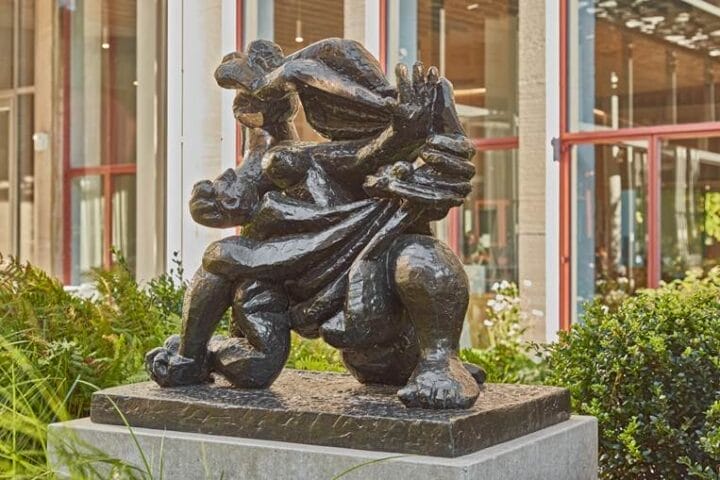Ahh, the music of Giuseppe Verdi! Have you ever been so moved by a classical piece that you felt like you were part of the orchestra? Or have you ever belted out an aria with enough vibrato to make Pavarotti proud? If so, then welcome to the incredible world of Giuseppe Verdi.
Verdi was an Italian composer whose music has been enthralling audiences since the mid-19th century. His works are known for their passionate melodies, dynamic range and—most important of all—rich emotion. Through his operas, choral pieces and concerto works, Verdi gave us a glimpse into what it means to be truly alive.
In this article, we’ll be exploring the life and music of this renowned composer. From his childhood in rural Italy to his later years in Florence, let’s take a closer look at the man behind some of classical music’s most iconic works.
Early Life and Education of Giuseppe Verdi
Giuseppe Verdi was one of the most renowned composers of the 19th century. He is known for his operas, requiems and symphonies, which spanned multiple genres and styles. But before his fame, he was just a young man growing up in small-town Italy.
Born in 1813 in Roncole, Parma (a region close to Milan), Verdi received piano lessons from a local music teacher starting at the age of seven—but it wasn’t until he was given a libretto by a local poet that his talent as a composer began to get noticed. After writing two operas while still in his teens, he attended the prestigious Royal School of Music in Milan from 1832–1836. There, he studied with Vincenzo Lavigna and Ferdinand Hérold, further refining his craft and honing in on the style that would later become iconic.
Verdi would go on to write over twenty operas, as well as four requiems and multiple symphonies—leaving behind a legacy that has inspired generations of composers ever since.
The Operas of Giuseppe Verdi
Giuseppe Verdi is best known for his lyrical and romantic operas, the compositions which earned him great fame throughout Europe in the 19th century. His operas are still performed today, over 150 years after his death, and can be heard in opera houses around the world.
Verdi wrote over 28 operas and 2 cantatas during his lifetime, making him one of the most prolific classical composers of all time. His works are characterized by their beautiful and emotive melodies, vivid characters, and frequent use of traditional Italian folk tunes. While many of his compositions were based on literature or historical events, some were personal works that reflected Verdi’s own life—particularly his opera ‘Rigoletto’, which he dedicated to his late daughter Maria.
Verdi wrote in various musical styles throughout his career, from grand operas like ‘Aida’ to more intimate pieces like ‘La Traviata’. Despite their differences in scope and genre, each work bears unmistakable hallmarks of Verdi’s style—catchy melodies that linger long after the music has ended.
Critical Reception and Accolades for Giuseppe Verdi
Giuseppe Verdi’s music was celebrated by all of Europe, and beyond. His works were particularly admired and appreciated in the opera world, and he eventually became known as one of the “Three Bs” – alongside Bach and Beethoven – as a titan of musical composition.
Verdi was lauded for his talent and skill in both vocal writing and orchestral composition. He combined Italian melodic lyricism with Germanic innovations, creating something entirely unique. He was also proficient in adapting librettos to suit his own style, often making it more dramatic or comedic than the original author had intended.
He was also acclaimed for his ability to craft works that touched audiences emotionally and intellectually. Verdi is credited with revolutionizing opera by creating emotionally powerful stories with memorable characters and music that lingers long after the final curtain call. With over 25 operas to his name, Verdi is regarded as one of the most prolific composers of all time.
The accolades received by Giuseppe Verdi made him one of the most renowned composers in history. In 1895, he was awarded a Gold Medal from the King of Italy for outstanding artistic achievement, and in 1925 he was commemorated on a postage stamp to honor his 75th anniversary as a composer. Throughout his life, Giuseppe wrote beautiful music that continues to amaze classical music aficionados today.
Personal Life and Legacy of Giuseppe Verdi
Giuseppe Verdi is remembered for many accomplishments in music. But did you know he had an interesting personal life, too?
For many years, Verdi lived a relatively private life and only married late in it. After the death of his first wife, he married the much younger soprano, Giuseppina Strepponi—who was his muse and librettist. Together they founded two music schools: The Casa Musicale and the Fondazione Scuola Normale di Musica in Parma.
Verdi’s legacy lives on through his works and his commitment to education through the two music schools he founded. He also launched a foundation to fund scholarships for aspiring musicians in Italy. Furthermore, the Verdi Festival celebrates his life and works annually for four days every October in Parma.
His impact on music is undeniable — even today several of his operas are among the most performed worldwide — and it looks like it will remain so for a long time to come!
Major Works by Giuseppe Verdi
Giuseppe Verdi is best known for his operas, which are still celebrated and performed today. Here are a few of his major works that you should definitely check out if you haven’t already:
Rigoletto
First up, Rigoletto. This was probably Verdi’s most successful opera, and it’s easy to see why. Its story of love, betrayal and revenge has stood the test of time and even today people recognize its famous aria, “La donna è mobile”. This opera also had great influence on other works such as Gilbert and Sullivan’s The Sorcerer.
La traviata
Next is La traviata – another great work by Verdi. This is another story with elements of love and tragedy, this time based on a play by Alexandre Dumas. It follows the story of Violetta Valéry as she’s torn between two men and her complicated love for them both. The work has been adapted many times over the years – to both stage productions and films – showing its enduring popularity in modern culture.
Aida
Finally, Aida – another much-loved classic by Verdi. This story follows the daughter of the King of Ethiopia who ends up enslaved in Egypt and must choose between her loyalty to her country or her lover Radamès, who is an officer in the Egyptian army. It features grand music – sometimes called “grand opera” – as well as complex characters, which makes it a timeless work that can be appreciated by contemporary audiences even today.
Understanding the Cultural Contributions of Giuseppe Verdi
Giuseppe Verdi not only contributed great works of music to the world, he also made important cultural contributions. He is widely recognized as one of the greatest opera composers of all time and is credited with popularizing Italian opera in the late 19th century.
Verdi is known for his use of traditional Italian folk music and melodies, which helped bring greater attention and appreciation to Italian culture. He was also an active proponent of Italian reunification, which he used his fame and influence to support. His most famous works such as Aida and La Traviata are often seen as musical representations of the struggle for Italian independence.
Politics
Verdi was an outspoken political activist for Italy’s unification and social reform. He joined the underground political movement known as “The Living Voice” which advocated for a unified Italy without foreign interference. Verdi even put lyrics to some of his operas that were supportive of this cause, such as in Il Corsaro (The Corsair).
Education
In addition to being a respected composer, Verdi was also an important figure in education reform. He established two scholarship funds – one for young musicians and one for aspiring librettists – to help them pursue their creative passions. Verdi also supported free public education, believing that it should be available to everyone regardless of their social class or financial status.
Conclusion
Giuseppe Verdi was an influential and prolific composer who revolutionized opera by introducing drama, realism, and emotional depth to the genre. His works are timeless, still captivating audiences centuries after his death. His experience bridging the old and new worlds of opera marked him as a great innovator who left an indelible mark on the music world.
Verdi’s legacy lives on today; his works are among the most widely performed operas in the world. His works have been adapted to musicals, films, and ballets, and there is likely to be a performance of a Verdi work at almost any time of the year. This is the result of a lifetime dedicated to innovating the art form and inspiring generations of opera lovers around the world.









